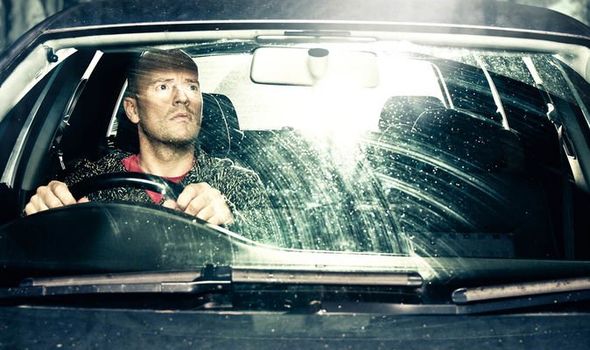With the clocks going back on October 27, many motorists will again be facing the challenges of regularly driving in the dark.
For those drivers who do the nine to five commute, taking to the road on dark mornings and evenings can be hard to avoid.
There are steps you can take, though, to improve your driving if you’re out on the roads once the sun’s gone down or before dawn.
First of all, make sure your mirrors, windscreen and windows are as clean as possible. Grubby streaks, smears and condensation can make glare worse. Check that all your lights are in good working order.
When you get into your car on a dark morning or evening, let your eyes acclimatise to the darkness before setting off. This is especially advisable when (BST) British Summer Time first ends. You might not have driven in the dark much at all in recent months so will be out of practice. Take in your surroundings and keep dashboard and interior lights dimmed to minimise reflection.

Plan ahead and always allow yourself extra time for your journey. Driving in the dark safely often involves dropping your speed; you don’t want to feel under time pressure to put your foot down.
It may be obvious but look after your eye health. If you’re in your late teens, 20s or 30s you might think you’ve got 2020 vision, but it’s always best to check. Book an appointment to have your eyes tested at least every two years.
Driving, in daylight or in the dark, is visually demanding, so it’s essential to the safety of all road users that drivers have good eyesight.
On this subject, the government is currently considering proposals which could see motorists take compulsory eye tests once they reach their 70th birthday. As part of this plan, drivers aged over 70 would need to have their sight tested every three years to retain their driving licence.
Most people experience some deterioration in their vision over time, but this can be gradual so you won’t necessarily realise it’s happening to you. You might well find that you need glasses for driving, or that your spectacles’ prescription has changed since your last eye examination. Motorists who need specs or contact lenses for driving, but don’t wear them when behind the wheel, can face prosecution.
Oh, and when it comes to putting on your glasses, make sure they’re clean and scratch-free. Lenses that are scratched and dirty will add to dazzle problems. If you find reflection from light sources such as streetlights and car head lamps distracting, consider getting anti-reflective lens coating for your glasses.
If you usually only drive in the dark on your usual commuter route, at least you’ll be familiar with the roads. Extra concentration will be needed though, so don’t get complacent and play your music too loud – and keep your distance from the cars in front. If your night-time journey involves roads you’re not used to, plan ahead and plot your route so that where possible, you can stick to well-lit highways. Don’t just rely on satnav. You don’t want to end up driving on a narrow, winding unlit country lane if you really don’t have to.
Never miss a deal again
Sign up to our mailing list to receive the latest deals straight to your inbox!
Categories
More Articles

2024's Top Leased Cars Revealed: Surprising Favourites Among UK Drivers
From hatchbacks and SUVs to luxury cars, we give the run down on the UK's top 10 lease cars from 2024.

Everything You Need To Know About Leasing For UK Startups
A vehicle might be critical to a start-up business but can also be important in establishing credibility and developing...

The Best Cars For Mums In 2025: Family-Friendly Leasing Options
Check out our rundown of the best family-friendly leasing options for mums in 2025, all available at Pink Car Leasing.




























